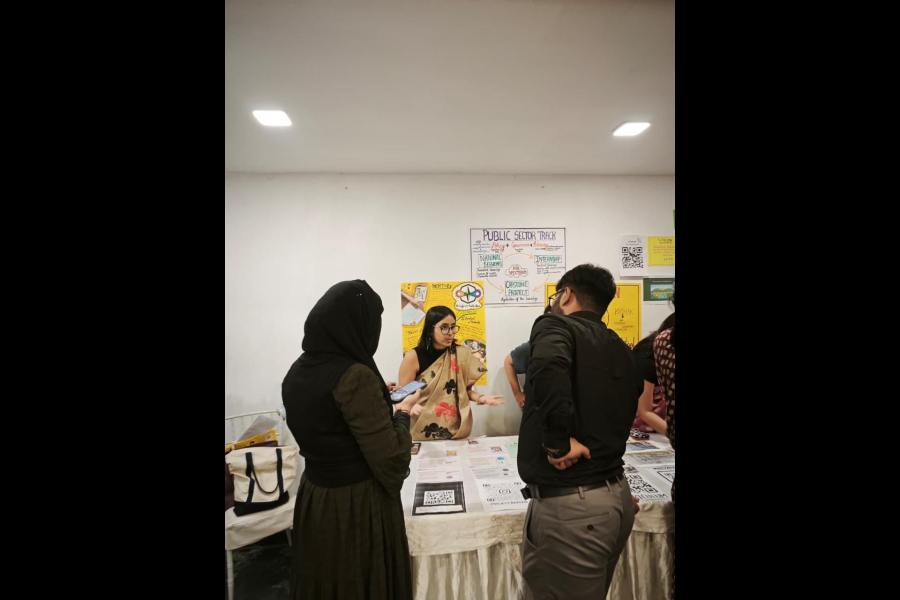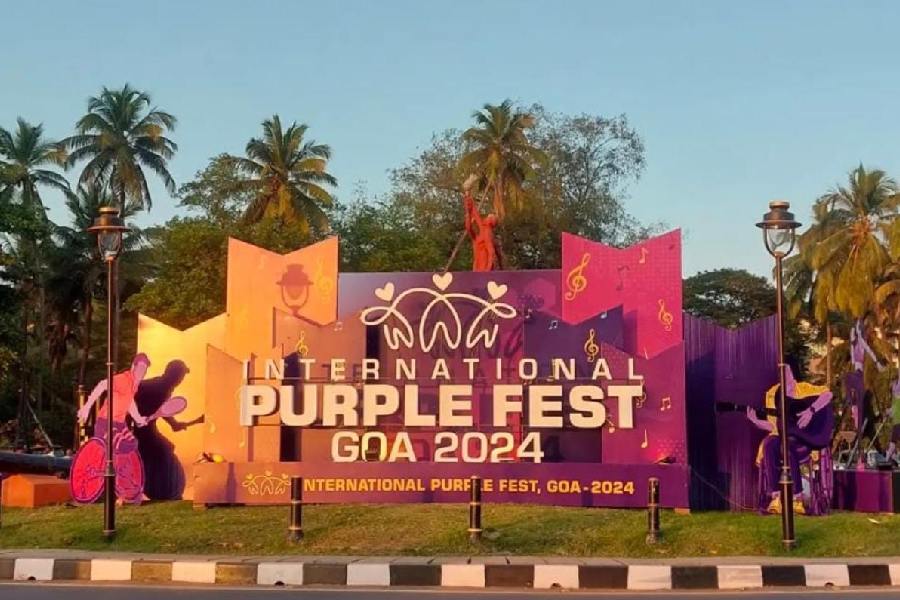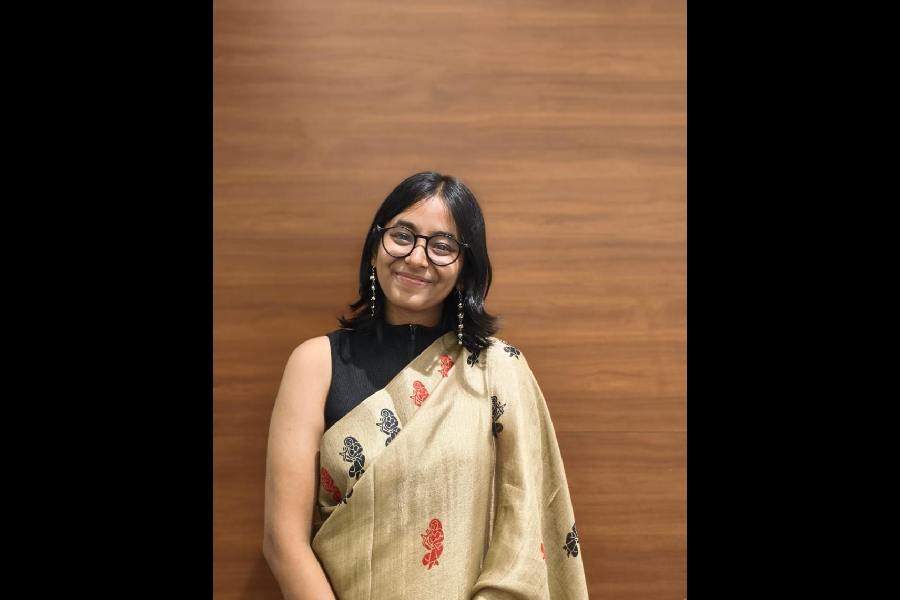A few months ago, a popular European film festival disqualified a Dutch film that dealt with stuttering. The reason? The film, they claimed, didn’t fit the festival’s theme for the year: Disability. Their message was clear: stuttering, apparently, isn’t “disability enough.”
As someone who stutters, I couldn’t help but feel a mix of frustration and disbelief. I have lived with developmental stuttering my entire life. People have often told me that stuttering isn’t really a disability, that everyone stutters at some point. My mouth feels tired from constantly explaining how my stuttering is different.
Growing up with stuttering
Life as a stutterer has never been easy. Growing up, I was always afraid to speak. It wasn’t just shyness or social anxiety. From the moment I stepped out of the house, I carried this heavy anticipation, a pressure in my chest warning me that I would fail if I tried to speak. Silence, judgmental faces, muffled laughter — these were constant companions. Even when people tried to help, their help often felt like pity, offered on their terms, not mine.
It wasn’t until my Master’s that I started speaking openly about stuttering. With a background in Culture Theory, especially Critical Disability Studies and Queer Crip Theory, I began integrating my personal experiences into my academic work. Around the same time, I connected with The Indian Stammering Association (TISA), India’s largest support group for people who stutter. For the first time, I felt part of a community that understood me, where leadership and solidarity inspired me to think bigger.
My engagement with stuttering has since taken many forms: presenting papers at international conferences, writing essays for Rising Flame and STAMMA UK, co-hosting the podcast The Pause Effect for TISA, and participating in support groups. Today, as a Teach For India Fellow in Calcutta, I co-pilot Naksha, a project that looks at neurodiversity, stuttering and inclusion in classrooms.

Rusha introducing Project Naksha at the TFI City Conference, Calcutta
Misunderstandings, misconceptions and stereotypes
Even in 2025, public understanding of stuttering is riddled with misconceptions. Although it’s often a lifelong condition, people treat it as a momentary defect. Conversations about stuttering almost always turn into unsolicited advice: “sing more,” “hold a stone under your tongue,” or even “eat ten green chillies to shock the stutter out of your system.”
Legal protections offer little relief. The Rights of Persons with Disabilities Act of 2016 does not recognise developmental stuttering as a disability under Speech and Language Disabilities. In India, this leaves people who stutter to navigate life without safeguards, accommodations, or recognition.
The paradox is stark. Society refuses to recognise stuttering as a disability, yet it doesn’t hesitate to ridicule it. The stutterer becomes a symbol of discomfort, suspended between being “able-bodied” enough to participate in society and “different” enough to be judged or excluded.
Why stuttering is a disability
At this point, some might ask: Why call stuttering a disability? Isn’t the word “disabled” stigmatised?
Yes, historically it has been. But today, thanks to global disability movements and intersectional activism, “disabled” is no longer a slur. It represents ownership, empowerment, and solidarity. Calling myself disabled aligns me with a history of struggle for dignity, access, and rights.
I reject the idea of being a “Supercrip,” someone praised for achieving despite disability. I have come this far with my disability, not despite it. That distinction is crucial.
Discovering the International Purple Fest
This brings us to the International Purple Fest 2025. Organised by the Department of Empowerment of Persons with Disabilities and the Office of the State Commissioner for Persons with Disabilities, Government of Goa, in collaboration with the Ministry of Social Justice and Empowerment and the United Nations, India, the Purple Fest is one of the most important disability events in India. Scheduled for October 9–12, 2025, in Goa, it brings together disabled persons from India and abroad to promote inclusion, accessibility, and rights.
The Fest is more than discussions; it features conferences, workshops, exhibits, sports, and cultural activities. Its scale and government backing mean its outcomes often influence policy and bring visibility to marginalised communities.
This year, I have the privilege of being a Purple Ambassador for Speech Disability, representing West Bengal.

My role as a Purple Ambassador
Being a Purple Ambassador is both an honour and a responsibility. I am tasked with representing my community — people who stutter — sharing my experiences, engaging in outreach, participating in discussions, and helping shape the conversation around disability. I also carry the responsibility of representing the work done by West Bengal’s disability community and offering feedback on accessibility and inclusivity during and after the event.
Through this role, I advocate for stuttering to be recognised, not as a minor quirk, but as a genuine disability that demands rights, accommodations, and visibility.
Why recognition matters
What makes my selection especially meaningful is that I don’t have a disability certificate for stuttering, because legally, stuttering isn’t recognised as a disability in India. Yet the Office of the State Commissioner chose to recognise it in my case.
This is a small but powerful step. Recognition allows people who stutter to claim legal protections, access accommodations, and participate in shaping policy. It transforms stuttering from a private struggle into a political identity. Until this becomes law, I may not be legally “disabled,” but I am rightfully so.
The importance of representation
Representation matters because stutterers are often invisible. Society dismisses our struggles as trivial and reduces our lives to superstition or advice on remedies. Being visible at events like the International Purple Fest challenges these misconceptions, validates our experiences, and ensures we have a voice in shaping policies that affect us.
Representation is not just about visibility; it’s about creating space for understanding, access, and equality. It sends a message to future generations of stutterers: you belong, your experiences matter, and you have a right to be heard.
The bigger picture
When that European film festival decided stuttering wasn’t “disability enough,” it reinforced a history of erasure. But platforms like the International Purple Fest offer a chance to challenge that erasure, to rewrite the narrative.
Calling stuttering a disability is about truth, empowerment, and solidarity, rather than weakness. It allows me, and countless others, to stand proudly in our identity, claim our rights, and advocate for inclusive spaces. I have come this far with my disability, and the journey ahead is just as important.










